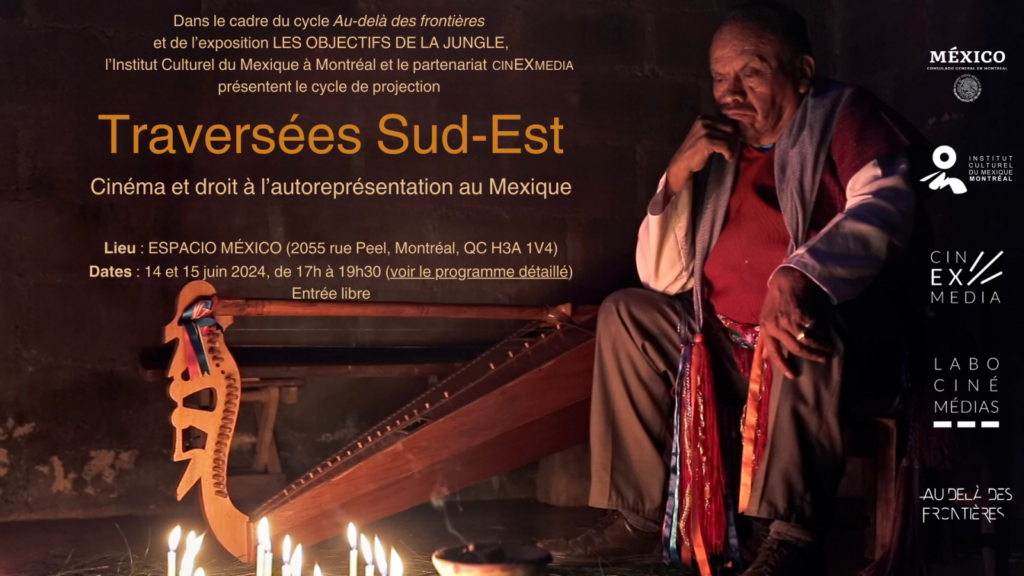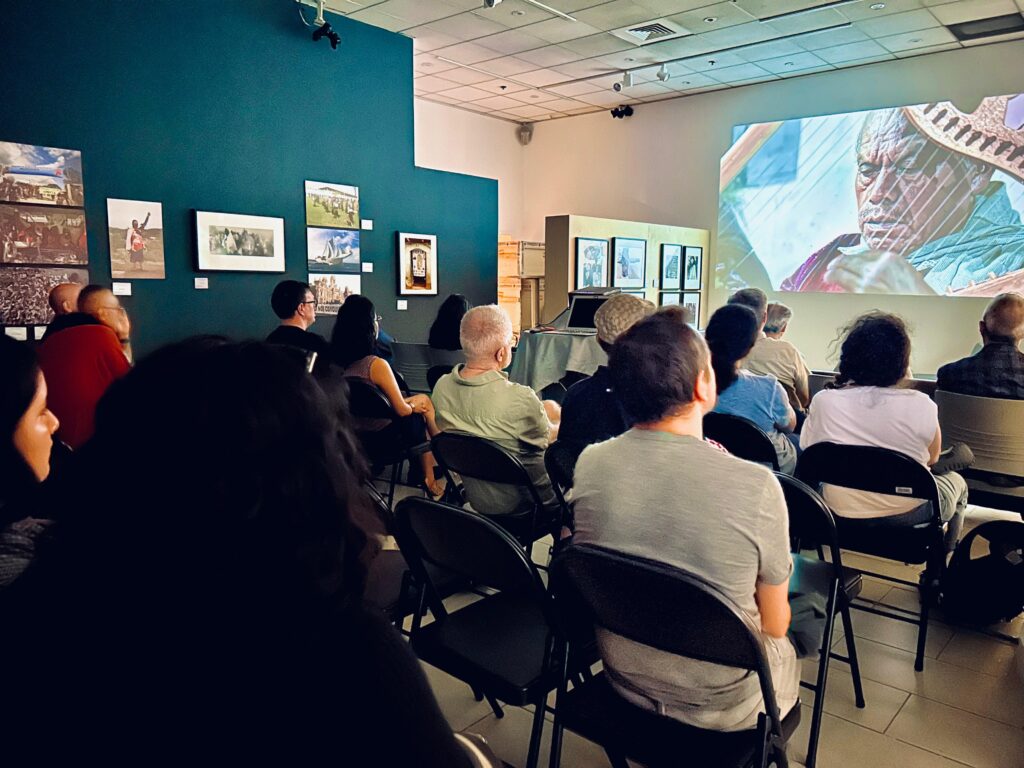Katia A. Morales Gaitán, a doctoral student who also works as an independent curator, invited Indigenous Mexican filmmakers to present their films in Quebec.

Olivier Du Ruisseau
Last 14 and 15 June, as part of the series of film screenings Traversées Sud-Est: Cinéma et droit d’autoreprésentation au Mexique, the researcher and curator Katia A. Morales Gaitán presented two feature films and experimental Indigenous Mexican films at the Espacio México gallery of the Instituto Cultural de México in Montreal. Thanks to the support of cinEXmedia, she was even able to invite a few filmmakers to come meet Montreal cinephiles.
Morales Gaitán had the idea of organising a film program devoted entirely to Indigenous Mexican cultures when she saw that Xun Sero’s film Maman (2022), a Tzotzil documentary, had been selected for the prestigious International Documentary Film Festival Amsterdam (IDFA).
“Although there are more than 500,000 speakers of Tzotzil in the world, very few films are made in this language or express Indigenous culture in Mexico”, Morales Gaitán remarks. “I was thus quite touched when I learned that this film had enjoyed such recognition. I was very pleased to see increasing numbers of young filmmakers receiving public funding and shining on the international stage, and this is why I wanted to pay tribute to them here in Montreal”.
An Attentive Audience in Quebec
Morales Gaitán had already presented a series of films on Mexican women filmmakers at the Espacio México last year. This cultural centre, supported by the Mexican consulate in Montreal, was thus the ideal partner for this new series of screenings. “The consulate also helped me a great deal in coordinating the guests’ arrivals”, Morales Gaitán is pleased to report. “I was very happy to be able to bring them to Montreal and to make them realise that they have an attentive audience in Quebec, where Indigenous culture is very different, but also very important”.

Morales Gaitán remarks that in Mexico, “cultures are much more mixed” than in Quebec, where “Indigenous peoples are still confined to reserves”. Indigenous people in Mexico, including the Tzotzil, “have also suffered enormously from colonial violence, which is reflected, among other things, in the underfunding of their cinema, even though they are quietly beginning to make their voices heard”, she says.
For her program, Morales Gaitán chose two feature films, one for each day of the event: Xun Sero’s Maman (2022) and Juan Javier Pérez’s Vaychiletik (2022). Juan Javier Pérez also had the opportunity to introduce his film in person at the event. Three short films, including experimental and documentary films, were also shown each day, for a total of eight films screened.
“Profound Authenticity”
The two feature films screened were created by the Terra Nostra collective, located in Los Altos in the province of Chiapas. “Stamped with profound authenticity”, Morales Gaitán remarks in a press release for the event, these films “embody a new era for the right to self-representation, to access to culture and to artistic production in Tzotzil society”. The other experimental and short videos presented, created by the Demina Laboratorio de Artes collective, “take us, for their part, to the atmosphere of Acapulco, a once-glamorous Mexican seaside city which today is facing difficult socio-economic realities and a climate of violence which is taking it far from the tranquility it once knew”, she notes.
Katia A. Morales Gaitán trained as a sociologist and is working on her doctorate in a joint program with the Université de Montréal, under the supervision of André Gaudreault, and Université Sorbonne Nouvelle (Paris 3), with Laurent Creton. Her research examines the potential of block-chain technology to fund independent cinema. A cinephile, she has also been working in the cultural milieu for several years organising film series for a variety of organisations.
Coming off the success of Traversées Sud-Est, she now intends to “collaborate again with Espacio México, perhaps next year, to continue to make Mexican cinema shine in Quebec”.
